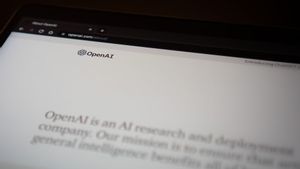JAKARTA - Kaspersky experts have appealed to financial institutions and organizations to further strengthen their defenses by 2024, as AI-driven threats have the potential to increase and the development of automation will become a trend.
In cybercrime reports and financial threat predictions for 2024, Kaspersky anticipates an increase in cyberattacks, exploitation of direct payment systems, revival of Brazilian banking trojans, increased open source backdoor packages, as well as increased Web3 threats and increased demand for malware makers.
Last year, Kaspersky experts managed to accurately estimate an increase in Web3 threats, an increase in malware maker demand, and a shift in ransomware group motives towards destructive activity.
In 2024, the cybersecurity company expects a spike in AI-driven cyberattacks and a legitimate imitation of communication channels, leading to a proliferation of low-quality campaigns.
In addition, experts also predict cybercriminals will take advantage of the popularity of the direct payment system, resulting in the emergence of a malware clipboard and increased exploitation of mobile banking Trojans.
Another worrying trend in 2024 is the increase in open source backdoor packages. Where cybercriminals will exploit vulnerabilities in widely used open source software, thereby endangering security and potentially causing data breaches and financial losses.
VOIR éGALEMENT:
Other important predictions mentioned by Kaspersky include:
Global adoption of the Auto Transfer Systems. This threat will exceed Brazil's national borders, allowing cybercriminals around the world to exploit this system for financial gain.
The decline in zero-days, an increase in one-day exploitation. Cybercriminals will shift to a more reliable one-day exploit due to the scarcity of zero-days, which aims to increase accessibility.
Misconfigured device and service exploits. The increased exploitation of misconfigured devices and services, granting cybercriminals unauthorized access to launch attacks.
The English, Chinese, Japanese, Arabic, and French versions are automatically generated by the AI. So there may still be inaccuracies in translating, please always see Indonesian as our main language. (system supported by DigitalSiber.id)












